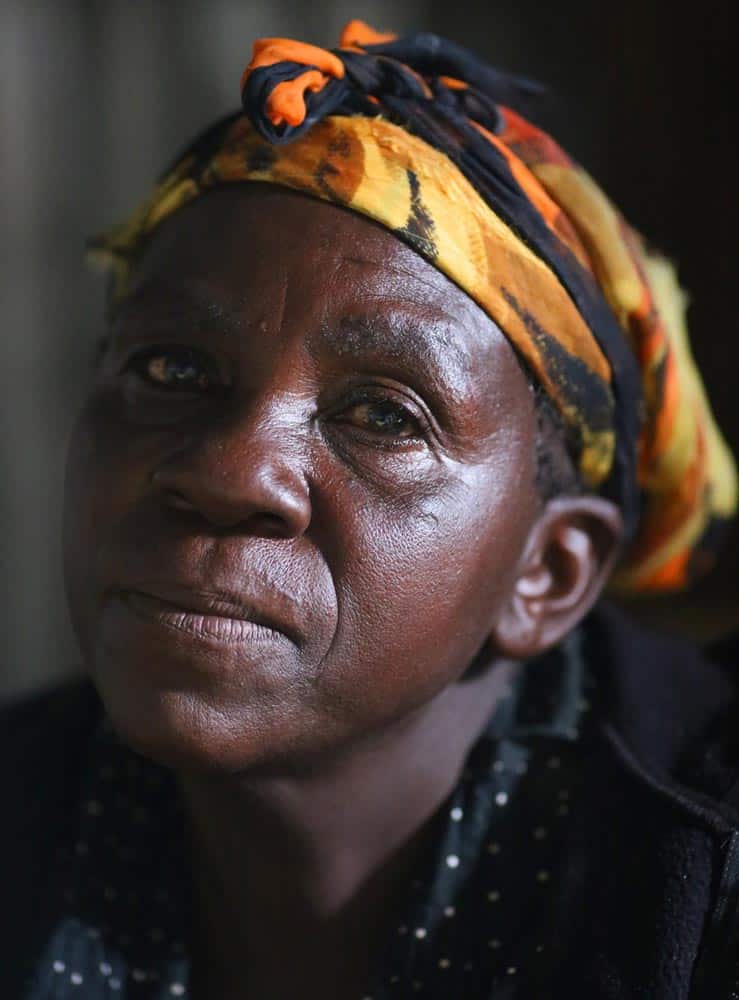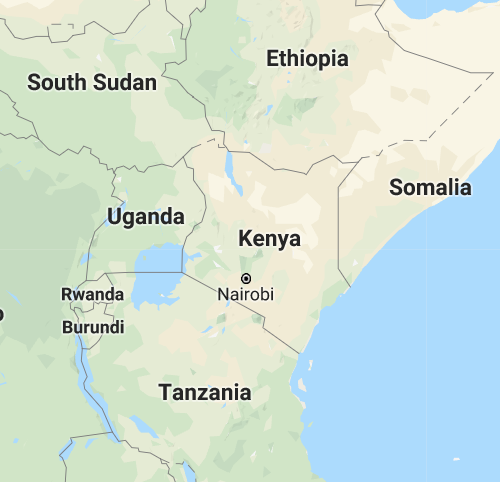 Dorkas Kwamboka, 60, and her father James Nabara, 96. Dorkas’s three grandchildren are at school the morning of our visit. Dorkas grows some maize and beans on her property, with the help of the grandchildren. James is enfeebled by knees that are chronically swollen after a working life spent in the quarry, hammering rocks into gravel.
Dorkas Kwamboka, 60, and her father James Nabara, 96. Dorkas’s three grandchildren are at school the morning of our visit. Dorkas grows some maize and beans on her property, with the help of the grandchildren. James is enfeebled by knees that are chronically swollen after a working life spent in the quarry, hammering rocks into gravel.
When asked about her life, Dorkas is eager to talk about her grandchildren. The eldest is 20 years old and in his last year of secondary school; the middle is 17 and in Form 2; and the youngest is 13 in Class 8. The mother of the youngest is a prostitute in the nearby truck stop town of Mahi Maihu; the mother of the middle child is also a prostitute and very sick. The eldest lost his parents in what the Kenyans call the Clash or Crash of 2007, the election that caused so much tribal conflict that thousands of people were massacred or displaced. This child, along with so many others, was simply dumped in the Rift Valley and later discovered by his grandmother.
Dorkas is happy today with the solar lights we have brought as a thank you for letting us learn about her and her life. When asked what difference the lights will make for her family, she responds with enthusiasm. She will not have to spend money now on kerosene for her lamps, kerosene that was so expensive for her that she couldn’t afford to burn the lamps into the evening. Now the children will have the light they need to study at night. And none of them will have to breathe in kerosene smoke any longer. When she turns on the light switch and the bulb illuminates, Dorkas’s smile eclipses the new brightness in the room.
